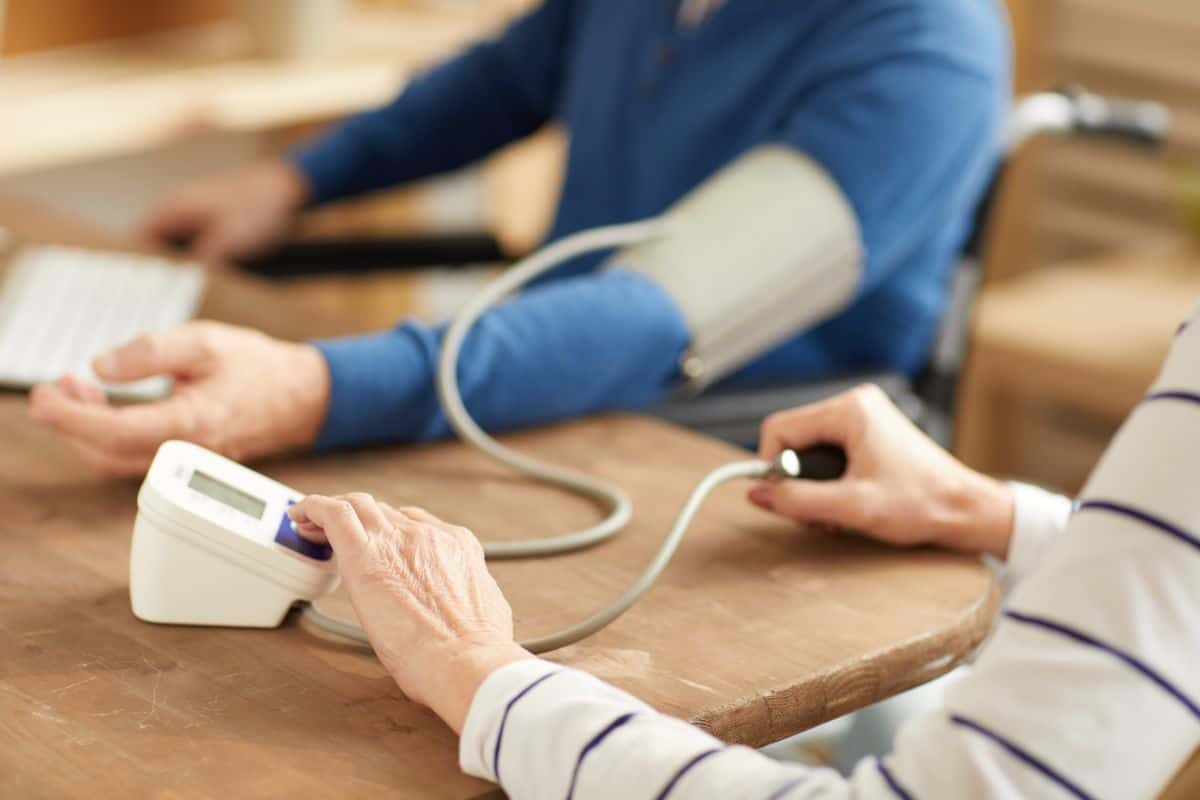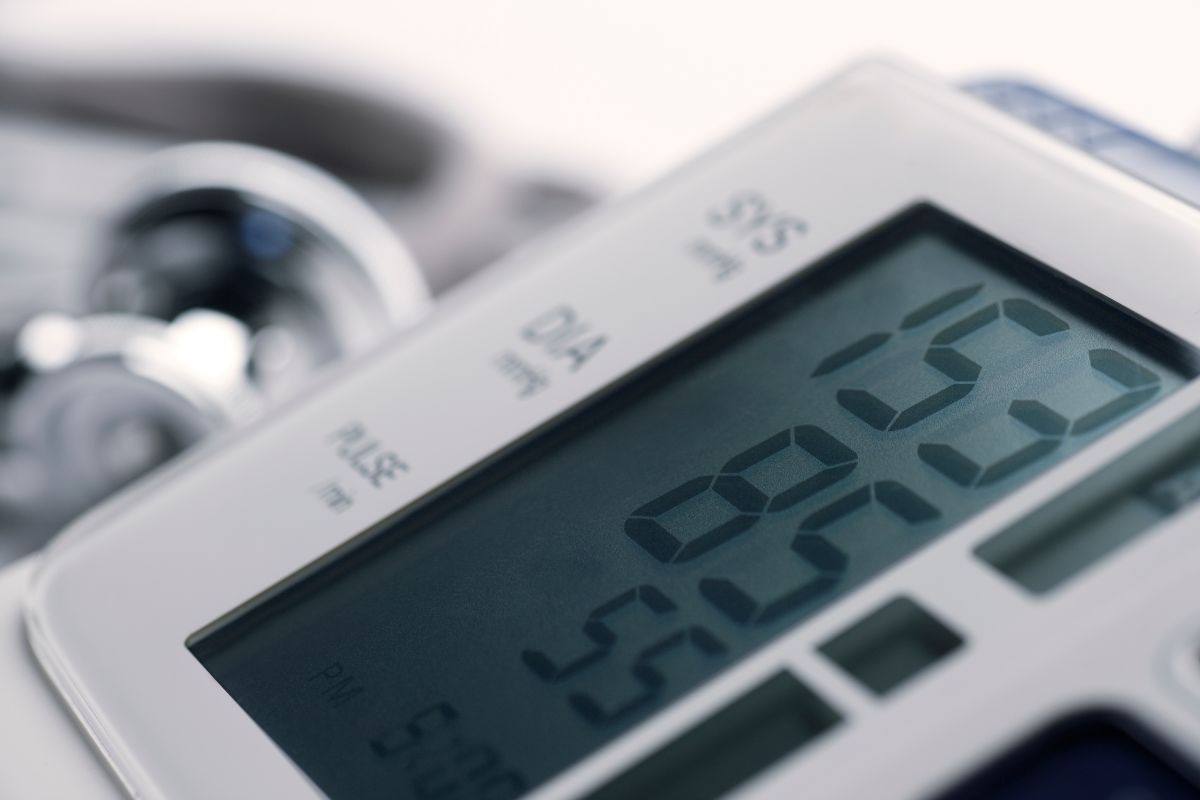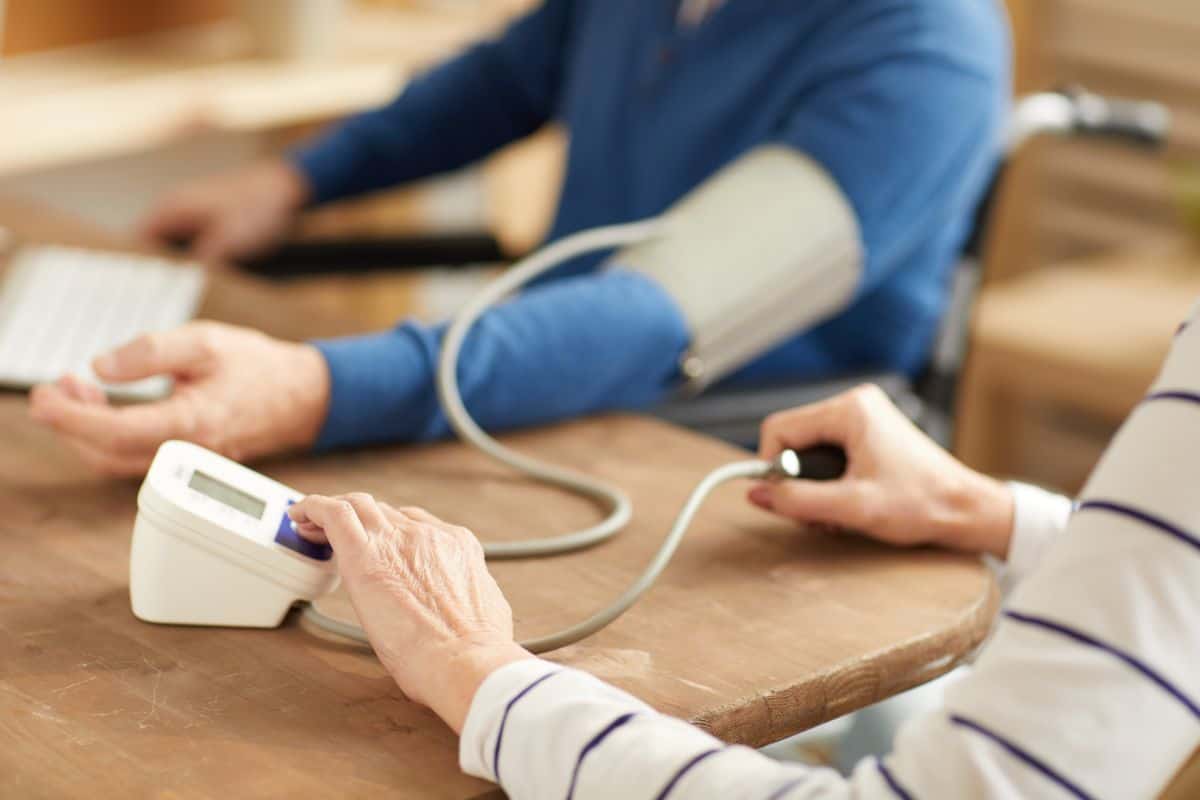Having high blood pressure is a common problem for many Americans. It is quite difficult to diagnose and can cause many problems if it is not noticed or treated.
Often, people who suffer from high blood pressure are not aware that they are affected by it.
High-blood pressure can lead to life-threatening problems if it is left untreated and so you should always ensure that you are keeping on top of your health when it comes to blood pressure monitors.
If you’re looking at this page, you must be slightly concerned about your blood pressure. So that’s why it’s good that medicare does cover many aspects of high blood pressure screening and diagnosis.
Table of contents
Does Medicare Cover Blood Pressure Monitors?

While Medicare does cover many different blood pressure treatments and diagnosis, they do not usually cover blood pressure monitors for you to use at home.
However, depending on the type of treatment you have, blood pressure monitors may be available in certain situations.
If you have the Medicare Part A coverage, you will be able to get blood pressure monitoring while you are staying at hospital if the blood pressure monitoring is part of a care plan.
If you have Medicare Part B, you will be eligible to receive blood pressure checks if they are performed by a physician that has been approved by Medicare.
This is because Medicare considers these checks as care that is preventive if they are performed during a visit to the physician or doctor.
There is a third treatment plan for Medicare which is referred to as Part C. This is known as Medicare advantage and should include some more services than the other plans.
If this applies to you, you should get in contact with the insurance company so that you know if it covers blood pressure monitors.
In some cases, you will be able to get coverage for having a blood pressure monitor at home, but usually this is not the case if you simply suffer from high blood pressure that has no other side effects.
Usually, if you are having dialysis treatment at home, or you are receiving a similar treatment to this, you may be able to get blood pressure monitors at home from Medicare.
If you can use your Medicare coverage to purchase or rent a blood pressure monitor, you will usually have to ensure that you get it from a Medicare approved company.
Cost of Blood Pressure Monitors
If you are unable to get a blood pressure monitor using your Medicare coverage, you may want to invest in a monitor yourself.
They vary in price as well as accuracy, but it may be worth a purchase if you are able to afford one and you are concerned about your blood pressure. Keeping an eye on your blood pressure is very important.
Treatment of High Blood Pressure
There are a number of different ways in which high blood pressure is treated. This is usually through things such as certain medications.
There are also some lifestyle changes that can help with your high blood pressure. For instance, if you eat a low-sodium diet then you are more likely to be able to lower your blood pressure.
This includes eating lots of fruit and vegetables and whole grains. Exercise is also great for lowering blood pressure and maintaining a healthy weight.
Stress can also lead to high blood pressure, as can smoking. These lifestyle changes can really help with blood pressure problems.
If these lifestyle changes don’t work then you may be prescribed medications which help to lower your blood pressure. These come in many different forms including:
- ACE inhibitors
- Angiotensin-II receptor blockers
- Calcium channel blockers
- Diuretics
Sometimes, you may have to try a few different medications before you find the one that suits you best.
Some people also have to try a combination of different medications until they manage to get their blood pressure under control.
Using Blood Pressure Monitors
Blood pressure affects about half of the US population and should be tested regularly to ensure that you are as healthy as possible.
Blood pressure monitors should be used in the following ways to make them most effective:
- You should plan ahead so that you don’t eat, smoke, or drink any caffeine for up to 30 minutes before using the blood pressure monitor.
- You should use the monitor on an empty bladder.
- You should be comfortable when you are taking your blood pressure reading. Make sure you are sat down and your legs are not crossed.
- Your arm should be placed on a flat surface.
- You should place the blood pressure monitor cuff just above the elbow.
- Make sure you take the reading twice a day and take two or three readings each time.
- Keep a note of the results from each test.
What To Do If Your Blood Pressure Reading Is High?

If you have a very high blood pressure reading, then you should wait for a few minutes and then try again.
Sometimes, you may have just been nervous during this reading or something may have made you jump, causing your pressure to rise. A high blood pressure reading is considered anything above 180/120 mm Hg.
If you have retested and your results remain high, contact the doctor to ensure you get checked up immediately. If you are experiencing high blood pressure you may also experience other symptoms.
These symptoms include chest pain, being short of breath, back pain and vision problems. If you experience these symptoms, call 911 immediately as there could be further complications.
Final Thoughts
So, if you’re reading this article you may be concerned about your blood pressure and you’re looking to get yourself a blood pressure monitor.
Depending on the type of Medicare plan, you will be able to get some high blood pressure treatment covered. However, most medicare plans do not cover you buying a blood pressure monitor for at home use.
If you’re still unsure, contact Medicare to discuss your specific plan. They will be able to let you know what cover they can provide you specifically.
If you’re concerned about your blood pressure, make sure you talk to a medical professional!
Frequently Asked Questions
If you have Medicare, you may be eligible for a free blood pressure monitor. Medicare Part B covers the cost of medically necessary equipment, including blood pressure monitors, as long as your doctor prescribes it.
Are blood pressure monitors covered by health insurance? If you regularly need to monitor your blood pressure at home, blood pressure monitors may be covered by your private health insurance. To have cover for blood pressure monitors, you will generally need to have a comprehensive extras policy.
Check for accuracy. “If the systolic blood pressure (the top number) on your cuff is within 10 points of the monitor, then it’s generally accurate,” he says. Most home blood pressure machines last for about two or three years. After that, check it at your doctor’s office annually to make sure it’s still accurate
